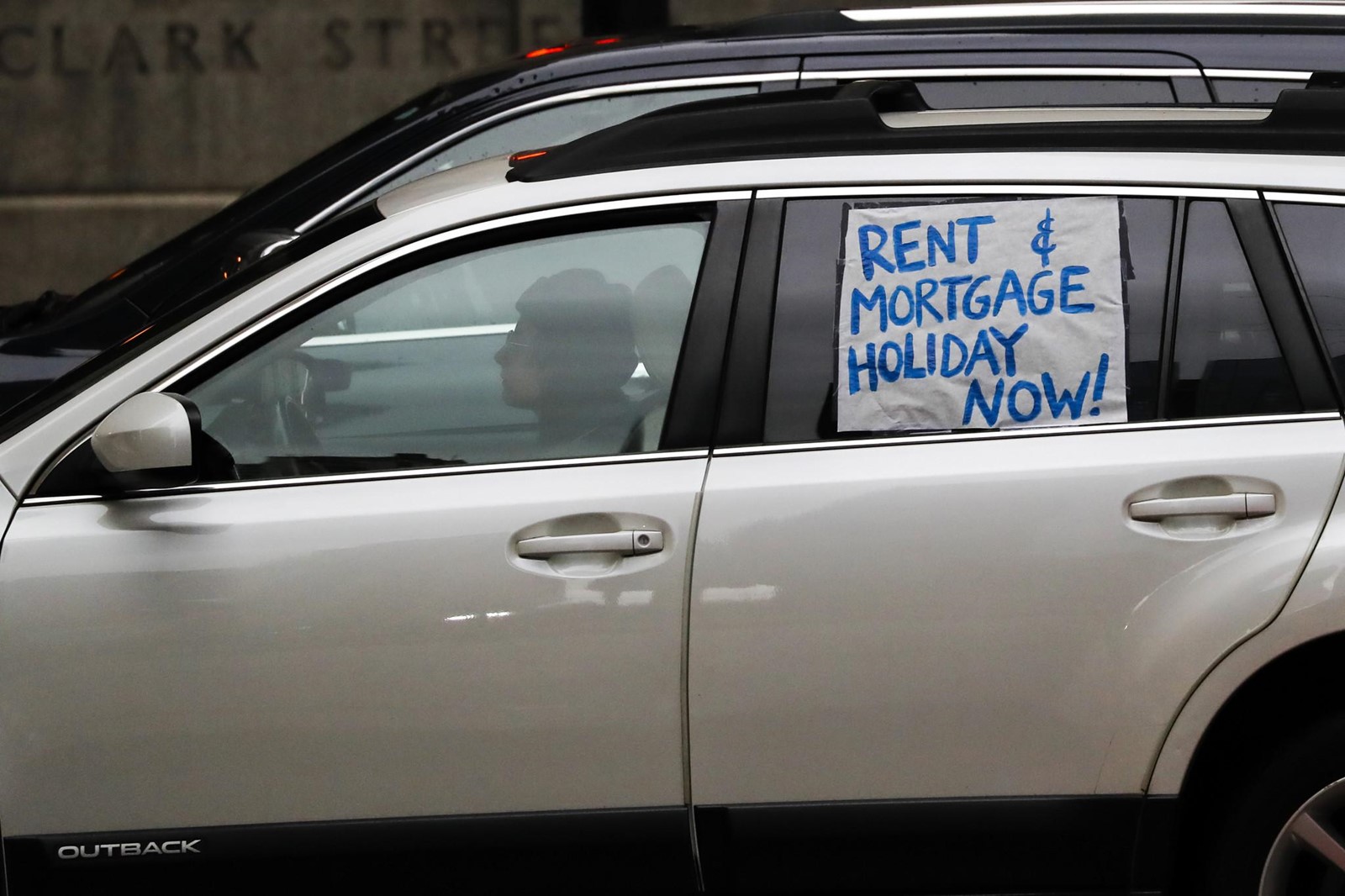Fear building over amount of people not paying rent, utility bills, officials say

The need for food and toys has been well publicized this holiday season but there’s another problem snowballing as the pandemic continues, government and nonprofit officials say.
“People are struggling the most with paying rent and utility bills,” said Kaitlyn Ehler, social service coordinator for the Elgin Salvation Army.
Illinois is doing a good job providing for families facing food insecurity, Ehler said, but what they need as well is help paying mortgage, rent, water, electricity and gas bills.
Before COVID-19, the Salvation Army would help about 15 people a month with those expenses. Now, the number is closer to 30, Ehler said, and they’re referring families to other local nonprofit agencies for help.
The city of Elgin is seeing the pandemic effect in the number of people who are behind or have stopped paying their municipal water bills.
The percentage of water accounts that are behind for 90 days or more was 4.8% in December 2019 and 16.5% this December, said Debra Nawrocki, the city’s chief financial officer. That adds up to $4.9 million in unpaid bills, $1.2 million more than last year, she said.
Last year, 82% of property owners were current with their utility bill payments, she said. This year the number is 65%.
The city’s been delaying water service shutoffs because of the pandemic but they may need to consider hiring a company to help them get overdue bills paid once the state’s moratorium on evictions is lifted, City Manager Rick Kozal said.
It’s a similar situation with electricity and gas, Elgin Township Supervisor Franklin Ramirez said. ComEd and Nicor won’t typically shut off utilities in winter but bills keep piling up, he said.
“We tell people who come to us that they have to pay their bills as much as they can,” Ramirez said. “Some people haven’t paid rent for eight months. Eventually, there will be evictions. We’re here to help as much as we can, but the floodgates will open. I see it every day, and it scares me.”
The township has two programs to help people with utilities — general and emergency assistance. It budgets $430,000 for both, Ramirez said.
General assistance is mandated under state law, he said, and so far they’ve paid out $134,000 to families who have needed help, he said. Emergency assistance can be given to someone once every 18 months, the money specifically earmarked to pay rent to avoid an eviction and utilities like a water, gas or electricity, Ramirez said.
Families must qualify for help under both programs, he said.
“Township government helps the poorest of the poor through general assistance and emergency assistance. That’s our mission,” Ramirez said.
Elgin Township hasn’t received any federal CARES Act funding to help people during the economic downturn caused by COVID-19, something to which Ramirez takes exception.
Kane County received $93 million to be distributed for local pandemic expenditures and needs, but township governments were excluded from the list of those who could apply, he said.
“Kane County had a whole bunch of coronavirus funds,” Ramirez said. “I tried to explain to Kane County that townships will be on the back end of this. We budget for general assistance. If I spend all the budgeted money, I have nothing left tomorrow.”
It’s been frustrating, he said, to see that some of the agencies that did receive funding used it to buy “extra hand sanitizer, Plexiglas dividers and other mitigation items. If you look at their (expenses), it’s not for utility assistance, rental assistance or anything outside their normal operation.”
He’s worried that when families start getting evicted and utilities are demanding back payments, the township will have no money to help, he said.
“Everyone says we’re out of the woods when COVID is ‘over,’ ” Ramirez said. “But no one asks how many evictions are filed. It’s in the thousands. It’s a scary number. I don’t think people understand this storm is really going to hit people at the end.”
Because state law mandates general assistance always be available, “we can’t say, ‘Sorry, we ran out of money.’ We can’t go bankrupt,” he said. “If I had to, I would have to terminate emergency assistance, which is not something I would want to do at all.”
Townships are the oldest form of government in the country, dating back to before the Revolutionary War, but “it’s an uphill battle for this little-government-that-could in terms of getting a seat at the table for major issues like coronavirus funding.”
So Ramirez said all they can do is wait for the evictions to start and do the best they can. In the meantime, they’ll keep helping families who qualify and referring people to


 PREVIOUS ARTICLE
PREVIOUS ARTICLE
